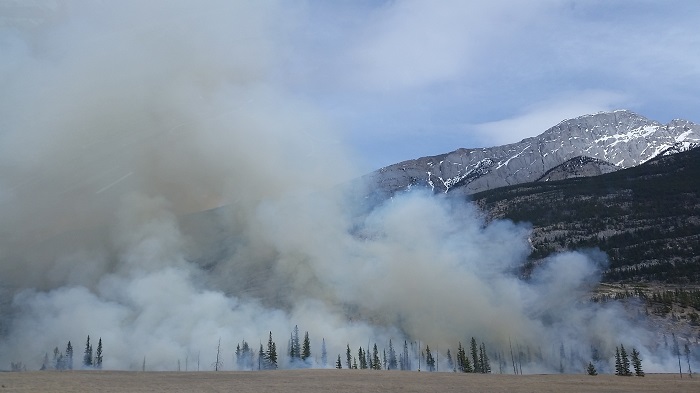Summer is a great time to be outside and enjoy all that the Pacific Northwest has to offer. But there’s also an increasing risk that wildfires in the area will have an impact on air quality, and on your health. To prevent any negative impacts on your health, it’s important to understand the role that wildfires play in affecting air quality, the impacts that air quality can have on your health, and measures that you can take to mitigate the impact of air quality on your health.
How Do Wildfires Affect Air Quality?
Wildfire smoke contains particulate matter from burning trees, as well as gasses like carbon dioxide and carbon monoxide. Wildfires are also known to release mercury into the air – this toxic metal can lead to significant health impacts. Other toxic pollutants can be released into the air if wildfires spread into industrial or residential areas. This combination of gasses and solids in the atmosphere greatly reduces the air quality in surrounding areas.
What Effects Do Air Quality Have On Health?
Wildfire smoke has noticeable impacts on respiratory and cardiopulmonary health. Effects could be as minor as irritation of the eyes, nose, throat, and lungs. They could also lead to more serious long term effects such as decreased lung function.
People with pre-existing conditions like asthma or cardiovascular disease may find that their symptoms are aggravated by wildfire smoke. It’s especially important for people with these conditions to monitor air quality and take measures to protect themselves. Prolonged exposure to low-quality air could lead to serious complications.
How Can I Prevent Low Air Quality From Impacting My Health?
The best way to prevent poor air quality from affecting your health is to avoid it entirely. When there is a lot of wildfire smoke in the air, try to stay indoors in a building with filtered air. Most modern air conditioning systems should do the trick. If you don’t have air conditioning in your home, consider purchasing an air purifier for your home. You can also rig up an air filtration system for your home using a box fan and a furnace filter (find instructions here).
If you live in a large house, consider creating a “clean room” to minimize the cost of filtering your air. Find a room with as few windows and doors as possible – a bedroom is a great choice. Keep your windows and doors closed in that room, and run air conditioning or an air filter in that room. If you stay in that room while the air quality is poor, you can breathe in cleaner air without having to filter the air throughout your house.
You should also minimize your activity levels when air pollution is high. Avoid strenuous activity. Exercise and physical labor could make you breathe faster and more deeply, brining more of the poor-quality air into your lungs.
If you must go outside or engage in physical activity, wear an N-95 or P-100 respirator. A simple dust mask or cloth face mask won’t work – these won’t filter out the small air particles that are dispersed into the air by wildfires. An N-95 mask or better should be able to filter out the fine particles in the air before they make it to your lungs.
Useful Tools For Tracking Air Quality
Several government agencies have worked together to create monitoring tools for wildfires and air quality. Here’s a short list of online tools relevant to the Vancouver area:
Fire and Smoke Map – https://fire.airnow.gov/
OregonLive Wildfire Tracker – https://projects.oregonlive.com/wildfires/map
Oregon Department of Forestry Fire Statistics – https://www.oregon.gov/odf/fire/pages/firestats.aspx
Washington Wildfire Dashboard – https://experience.arcgis.com/experience/6cdda73cf6154949a1fae76ccb2900a0
Many weather websites and apps now report on air quality. Look for an “air quality” or “AQI” metric on your usual methods of checking the weather to keep an eye on how local wildfires might be affecting the quality of the air.
Conclusion
Wildfire season is unfortunately becoming a normal occurrence for the Pacific Northwest. We can expect more poor air-quality days in the future, and it’s best to be prepared. By following the guidelines in this article and using some of the online tools we mentioned, you can avoid some of the long-term health risks associated with exposure to wildfire smoke.

